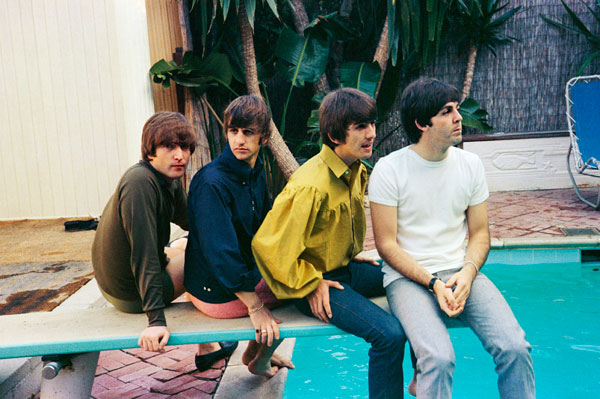A world driven by the written word, by novels and newspapers, may have just been a fleeting dream, even if it lasted for more than a century. Was the professional songwriter just a mirage as well? Sure, we knew the brick-and-mortar record store would be sacrificed to technology, but it wasn’t always clear that those who write the songs would also be forced to the altar. The opening of Van Dyke Parks’ Daily Beast piece about watching profits float away in the stream:
“Last month I was invited up to Ringo Starr’s home in Beverly Hills. He asked me to write a song with him for his next ‘virtual’ album. In two days’ devotion, we conjured and recorded a piece called ‘Bamboula.’
We then sat back and guessed what our possible ‘day rate’ for that time and effort would be. What an irony!
Forty years ago, co-writing a song with Ringo Starr would have provided me a house and a pool. Now, estimating 100,000 plays on Spotify, we guessed we’d split about $80. When I got home, on closer study, I found out we were way too optimistic. Spotify (on par with other streamers) pays only .00065 cents per play.
There’s less support for all the arts today, and the blade gets duller with every cut in arts funding. It degrades dance, opera, even academia and, significantly, the art of journalism. As a result, in the U.S., public opinion suffers from what we call ‘infotainment.’ That’s a genre of media news that is not informing, entertaining, or remedial. And it’s a direct result of a vacuum of patronage (and by patronage, I don’t mean just Medici-style sponsorship but the willingness of all arts consumers to pay for what they listen to, read, and watch, and for the industry to fairly recompense creators).
But let’s limit ourselves to a narrow-band study of royalty rates in my occupational field, music composition, and to industry practices in the U.S. from 1914 to 2014, a century in which declining royalty figures reveal a real dilemma: an imploding commodification if not outright destruction of intellectual property rights.”

